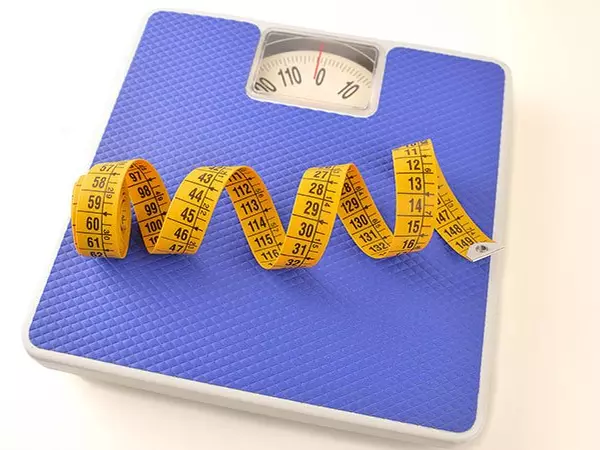
Does your body mass index (BMI) really matter?
There are many reasons a healthcare provider takes your height and weight at your annual checkup—one of them being so they can calculate your body mass index (BMI). What exactly is BMI though? And does the number really matter?
What is BMI?
Your BMI is a measurement of your height to weight ratio (e.g., the taller you are, the more you're expected to weigh). Everyone's BMI falls somewhere on a scale, which classifies their measurement as underweight, healthy or a level of obesity:
- Underweight: BMI under 18.5
- Healthy: BMI between 18.5-24.9
- Overweight: BMI between 25-29.9
- Obesity: BMI of 30 or more
How can I calculate my BMI?
One of the easiest ways to figure out your BMI is by searching for a free BMI calculator online. Once you find one you like, all you need to do is enter your height and weight.
Is BMI an accurate assessment of my health?
Yes and no. BMI is a useful tool for healthcare professionals to quickly identify health risks—for example, a person with a high BMI has a greater chance of developing cardiovascular disease and diabetes—but your BMI alone doesn't provide a detailed picture of your health. Regardless of your BMI, it's more important that your provider knows about lifestyle factors and family history that could affect your health.
As Gundersen registered dietitian Laura Birkel says: "Making sure you're getting enough activity, staying away from nicotine, engaging in regular physical activity and eating a good balanced diet are better indicators of your overall health than your BMI alone."
It's also worth keeping in mind that your BMI does not always accurately depict your specific body composition, such as how much fat versus muscle you have. You may increase your physical activity and find that your clothes begin to fit differently but your weight or BMI remains unchanged. This is because the composition of your body is changing (you're gaining muscle, losing fat).
OK. So why does my BMI matter then?
Knowing your BMI can help your healthcare team better understand what care options are available to you, especially if your BMI is greater than 30 and you want to improve your health. For example, if you are interested in taking weight-loss aiding medicines or trying a medically supervised meal-replacement program, you must have a BMI greater than 30. For bariatric surgery, your BMI needs to be above 40, with some exceptions for those with a BMI between 30 to 40.
"BMI is a baseline measurement to help dictate where we go in terms of what kind of plan or program is most appropriate for a patient," Birkel says. "The number is not meant to define someone's health. It's meant to guide their care where it needs to go."
Next steps
No matter where you are on your health journey, support is just a click away:
- Find healthy recipes for every occasion (nutritious beverages, snacks, entrées and everything in between)
- Work one-on-one with a registered dietitian to address things like long-term weight-loss, nutrition for special medical conditions and much more
- Explore Gundersen’s many weight-management options, including meal-replacement programs and bariatric surgery